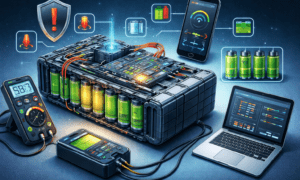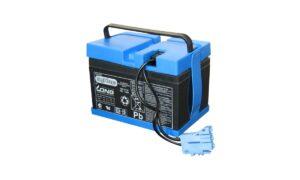Look around you, odds are there are at least half a dozen gadgets within arm’s reach that run on batteries. In our increasingly digital world, we’ve become so reliant on battery-powered devices that we rarely stop to think about what happens when those batteries die. Today, let’s discuss a seldom-spoken yet extremely important aspect: battery disposal and its implications.
The Perils of Poor Battery Disposal
Contrary to popular belief, tossing batteries in your trash can is far from being an environmentally friendly method of disposal. Many types of batteries, especially older ones, contain harmful substances like mercury, lead, cadmium, and nickel. When these batteries end up in landfills, these hazardous materials can seep into the soil, contaminating water sources and wreaking havoc on local ecosystems.
Proper Battery Disposal
The good news is that responsible battery disposal isn’t as complicated as it may seem. For regular alkaline batteries, it’s typically safe to throw them in your household trash, although it’s even better to take them to a recycling facility if one is available in your area. However, for rechargeable batteries and those from cars, laptops, and power tools, recycling becomes a must. Many stores and community centers have collection programs for these types of batteries, making disposal relatively convenient.
An Eco-friendly Alternative: Battery Reconditioning
While proper disposal is critical, a potentially more sustainable option is to extend the life of your batteries. Here, I’d like to introduce an innovative approach called battery reconditioning, a process that essentially revives ‘dead’ batteries. This method not only saves you money but also reduces the demand for new batteries and the subsequent waste.
For instance, the EZ Battery Reconditioning Method teaches users how to bring back to life their dead batteries of all kinds. A comprehensive eBook guide walks you through the steps, making it an achievable task even for those without much technical know-how. Not only can you recondition batteries for personal use, but you can also sell the reconditioned ones at premium prices, adding an entrepreneurial twist to this eco-friendly initiative.
Every Bit Counts
Each battery properly disposed of or reconditioned is a step towards a more sustainable future. Apart from the environmental benefits, these practices can also help you save money and possibly generate additional income.
In The Larger Context
Sustainability is not just about batteries, but about the overall energy footprint of your home. There are numerous simple and affordable ways to make your home more eco-friendly. For instance, check out this informative article which shares seven easy steps for homeowners to reduce their energy footprint. These tips, coupled with proper battery management, can significantly reduce your environmental impact.
In conclusion, the responsible management of batteries, from reconditioning to proper disposal, is a subject that requires more attention. A small change in our habits can go a long way in preserving our environment. So, the next time you consider tossing a ‘dead’ battery in the trash, think again.
The Myths of Battery Disposal
Many myths circulate around the issue of battery disposal. Some believe that all batteries are recyclable, while others might think that all batteries are hazardous. The truth is somewhere in the middle. Yes, most batteries can be recycled, but not all recycling facilities can handle all types of batteries. In addition, not all batteries are dangerous if disposed of incorrectly, but many contain materials that can be harmful to the environment if not handled correctly. It is essential to get the right information and to follow the appropriate disposal procedures for each type of battery.
The Impact of Batteries on Global Pollution
While we often hear about the impacts of plastic or vehicle emissions on the environment, the contribution of batteries to global pollution tends to fly under the radar. However, the reality is that improper battery disposal leads to substantial damage. These products take an incredibly long time to decompose, ranging from 100 to 1,000 years depending on the type. Over time, the heavy metals they contain can leach into the ground, contaminating soil and groundwater. Therefore, it’s not a problem that affects only landfill sites but can spread to damage wider ecosystems.
Battery Reconditioning as a Sustainable Solution
As we’ve seen, battery reconditioning offers a sustainable alternative to the wasteful cycle of use-and-dispose. By reviving spent batteries, we can reduce the number of new batteries that need to be produced, which not only decreases waste but also reduces the demand for the raw materials needed to manufacture new batteries. This is particularly significant given that many of these materials are non-renewable and their extraction often leads to environmental damage and social issues in mining communities. Embracing battery reconditioning is a practical step that everyone can take towards more sustainable living.



































